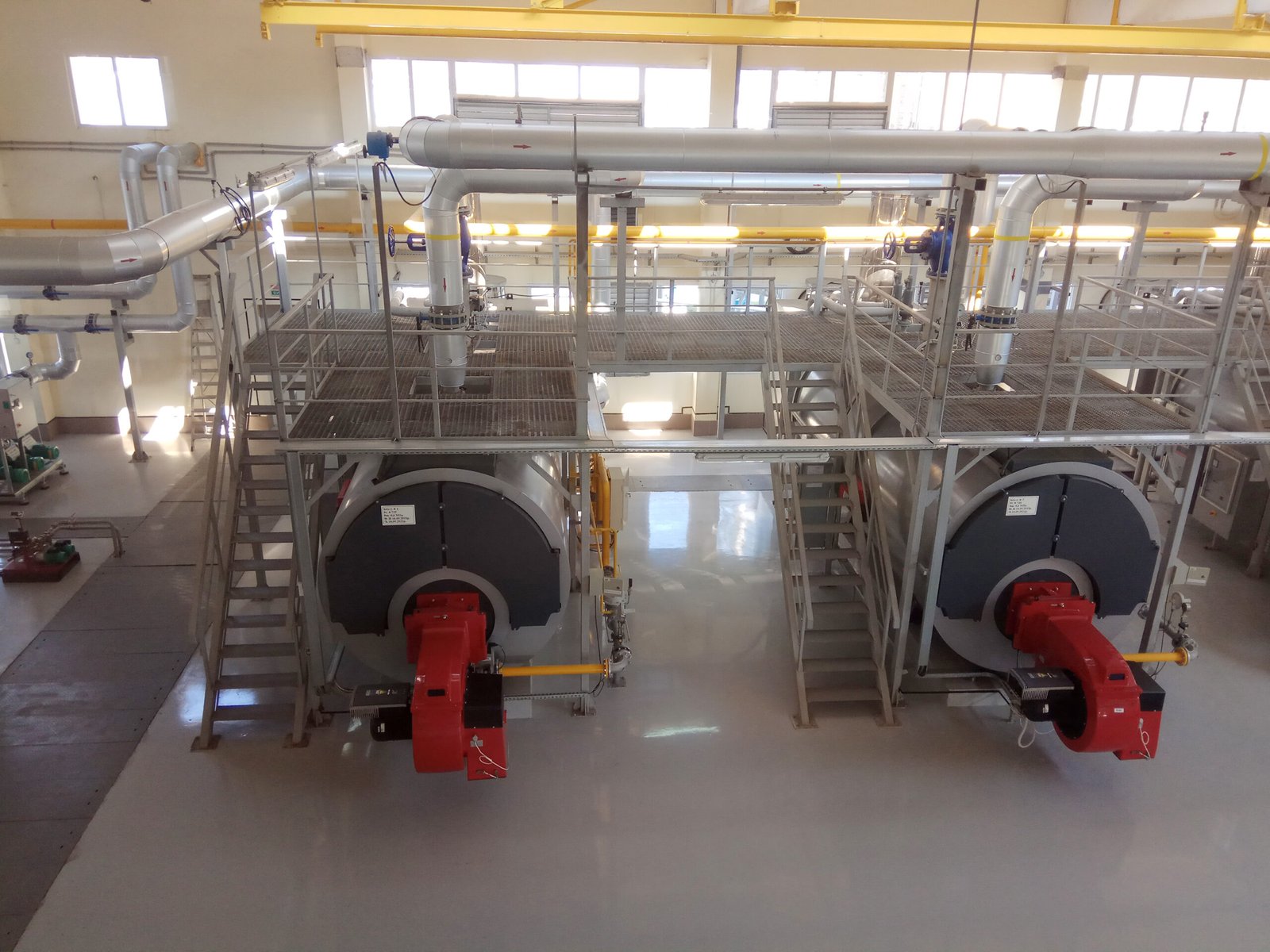Few industrial components work as hard or are as important as the boiler. Industrial boilers are vital for smooth and uninterrupted operation, whether powering production lines, generating steam, or heating big complexes. These systems are continuously subjected to severe temperatures, pressures, and corrosive substances, resulting in tremendous stress over time.
This is where preventive maintenance comes in—not as a luxury, but as a requirement. Preventive maintenance proactively detects and addresses problems before they worsen, whereas reactive maintenance remedies difficulties after they arise. What are the advantages? Improved efficiency, increased safety, lower operating costs, and, most significantly, a longer boiler lifespan.
Let’s look at why preventive maintenance isn’t just a good idea but also necessary for industrial boiler longevity.
1. Boilers Operate Under Extreme Conditions
Industrial boilers operate under extreme conditions, including high pressures, increased temperatures, and exposure to water and combustion gases. Over time, this generates natural wear and tear on components like:
- Boiler tubes and coils
- Waterwall panels
- Headers
- Economisers
- Burners and Control Systems
Small faults such as scaling, corrosion, or thermal fatigue can snowball into significant failures if not inspected and maintained regularly. By addressing these problems early on, preventive maintenance keeps the boiler operating at its best.
2. Avoiding Unplanned Downtime
A whole operation may be paralysed by unplanned boiler shutdowns, particularly in industries like:
- Power generation
- Chemical Processing
- Food and beverages
- Textile Manufacturing
- Pharmaceuticals
Unplanned downtime causes production losses, missed deadlines, and dissatisfied customers. Preventive maintenance routines aid in detecting problems before they impair operations. Early detection of tube leaks, malfunctioning valves, or burner misalignments allows businesses to schedule repairs without interfering with operations.
3. Improving Boiler Efficiency
Even modest inefficiencies in a boiler system can cause large energy losses over time. For example, interior surface scale buildup works as insulation, requiring more fuel to produce the same heat. According to industry statistics, a mere 1/8 inch of scale can affect heat transfer efficiency by up to 15%.
Preventive maintenance activities such as descaling, soot blowing, and burner calibration directly restore and increase thermal performance. Regular maintenance of economisers, boiler coils, and combustion chambers ensures that every unit of energy is used optimally, lowering fuel consumption and energy costs.
4. Enhancing Safety for Personnel and Equipment
Boilers store and operate at enormous energy levels. Without sufficient maintenance, the risk of explosions, fires, or mechanical failure increases dramatically. According to historical data, improperly maintained boilers cause some of the most serious industrial catastrophes.
Preventive maintenance ensures that:
- Pressure relief valves are functioning
- Water levels are within the safe limits
- Controls and interlocks operate correctly
- Safety features function as planned
A disciplined maintenance plan protects the equipment and the lives of those who use it.
5. Reducing Repair and Replacement Costs
Reactive maintenance is typically more costly than preventive maintenance. When a component fails, emergency repairs frequently require:
- Expensive spare components.
- Overtime labour
- Temporary shutdowns or alternative systems
Preventive maintenance, on the other hand, enables incremental replacement, budgeting, and inventory planning. For example, detecting early tube thinning via ultrasonic testing allows for scheduled replacement, avoiding tube rupture and associated damage.
Preventive maintenance is not an expense; it is an investment that reduces the total cost of ownership over time.
6. Maintaining Compliance and Standards
Industrial boilers must adhere to strict compliance standards and industry norms, such as:
- IBR (Indian Boiler Regulation)
- ASME Boiler and Pressure Vessel Code
- ISO Safety Standards
- Environmental emission norms
Regular preventive inspections assist in maintaining records, demonstrating compliance during audits, and avoiding fines or legal action. Furthermore, customers and clients in regulated industries frequently prefer to operate with facilities that adhere to strict boiler maintenance guidelines.
7. Data-Driven Insights and Predictive Maintenance
The sophisticated sensors and control panels in today’s boiler systems allow for real-time monitoring of several parameters, including water quality, fuel consumption, pressure, temperature, and pollutants. When used with preventive maintenance plans, these insights help:
- Predict component failure
- Optimise operational cycles
- Adjust performance thresholds
- Increase service intervals without sacrificing reliability
Industries can improve boiler longevity and uptime by combining predictive and preventative maintenance to make more informed decisions.
Key Preventive Maintenance Activities for Industrial Boilers
To maximize the life and performance of industrial boilers, a structured maintenance plan should include:
Daily/Weekly:
- Monitor boiler pressure, temperature, and water levels
- Check for leaks, unusual noises, or vibrations
- Review control panel alarms and diagnostics
Monthly/Quarterly:
- Test safety valves and low-water cutoffs
- Inspect burner operation and flame patterns
- Clean soot from fire tubes and economisers
Annually:
- Perform complete internal and external inspections
- Ultrasonic testing of boiler tubes and waterwalls
- Hydrostatic pressure testing
- Recalibration of control and safety systems
Additionally, maintaining accurate maintenance logs is vital for tracking performance trends and planning replacements.
Making Preventive Maintenance a Culture
Preventive maintenance only works when it’s systematic and company-wide. This means:
- Training boiler operators to identify early signs of trouble
- Scheduling inspections and maintenance in advance
- Collaborating with OEMs and service providers for technical support
- Investing in high-quality spares and reliable suppliers
An organizational mindset that values equipment health often results in higher productivity, reduced accidents, and better overall profitability.
Industrial boilers are significant capital investments. Their lifespan and dependability are closely related to the care they receive throughout their lives. Delaying maintenance in the name of urgency or cost-cutting is simple, but neglecting it can have disastrous long-term effects on operations and finances.
Preventive maintenance is more than just repairing what’s wrong; it’s about avoiding failures. The benefits are clear and measurable, ranging from safety and efficiency to environmental compliance and cost control.
Preventive maintenance is essential in industries that rely on boiler systems daily. One examination at a time serves as the cornerstone of sustainable and accountable operations.

